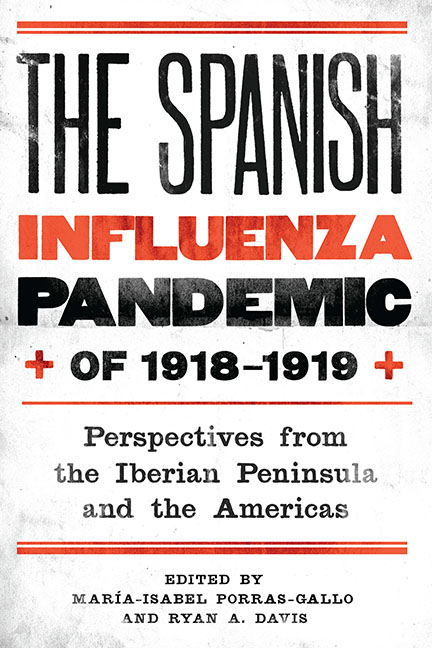 The Spanish Influenza Pandemic of 1918–1919
The Spanish Influenza Pandemic of 1918–1919 from Part Three - Interpreting the Epidemic: Sociocultural Dynamics and Perspectives
Published online by Cambridge University Press: 14 March 2018
Anguish verged on overwhelming the very medium that carried it, perhaps causing the air to bleed black ash or gray dust.
—Myla Goldberg, Wickett's RemedyA single death is a tragedy; a million deaths is a statistic.
—Attributed to Josef StalinNarrative is the medium that must carry and communicate the burden of past suffering. In Myla Goldberg's historical novel, a Boston family learns in the fall of 1918 that the eldest son has died of influenza in the army. Lydia, his sister, is walking home from the hospital—where she has just learned of her little nephew's death from the flu—when from the street she hears the terrible sound of her family's grieving. She knows it is being replicated throughout the city and imagines that the air itself must be damaged by the weight of so much pain. She imagines the air bleeding ash, or dust, the fallout not of a single damaged body but of a kind of holocaust.
A profound cultural and ethical implication of major epidemics is the loss of access to personal narratives. When the collective replaces the individual as protagonist, and the health of the public takes precedence over that of the individual, the resulting reductionism elides the particular and the subjective. As Stalin is said to have observed (and the irony of this attribution is apt), there is a paradox in the multiplication of personal catastrophe throughout a society, where the moral and emotional significance of an event is in inverse proportion to its extent or its incidence. The human imagination can inhabit the meaning of a single human calamity; multiply it across an entire population and the mind is overwhelmed. A million deaths, let alone the fifty or a hundred million caused by the pandemic, cannot be recounted as a meaningful story; they can only be counted, reduced to statistics, and trusted to speak for themselves—and they can speak only by reducing the particulars of suffering to intangible abstractions.
It makes sense that individual, embodied, deeply subjective representations of the pandemic, and particularly of the disease's felt effects on the lived bodies of the infected, would be missing, overshadowed by the enormity of global social disruption.
To save this book to your Kindle, first ensure [email protected] is added to your Approved Personal Document E-mail List under your Personal Document Settings on the Manage Your Content and Devices page of your Amazon account. Then enter the ‘name’ part of your Kindle email address below. Find out more about saving to your Kindle.
Note you can select to save to either the @free.kindle.com or @kindle.com variations. ‘@free.kindle.com’ emails are free but can only be saved to your device when it is connected to wi-fi. ‘@kindle.com’ emails can be delivered even when you are not connected to wi-fi, but note that service fees apply.
Find out more about the Kindle Personal Document Service.
To save content items to your account, please confirm that you agree to abide by our usage policies. If this is the first time you use this feature, you will be asked to authorise Cambridge Core to connect with your account. Find out more about saving content to Dropbox.
To save content items to your account, please confirm that you agree to abide by our usage policies. If this is the first time you use this feature, you will be asked to authorise Cambridge Core to connect with your account. Find out more about saving content to Google Drive.